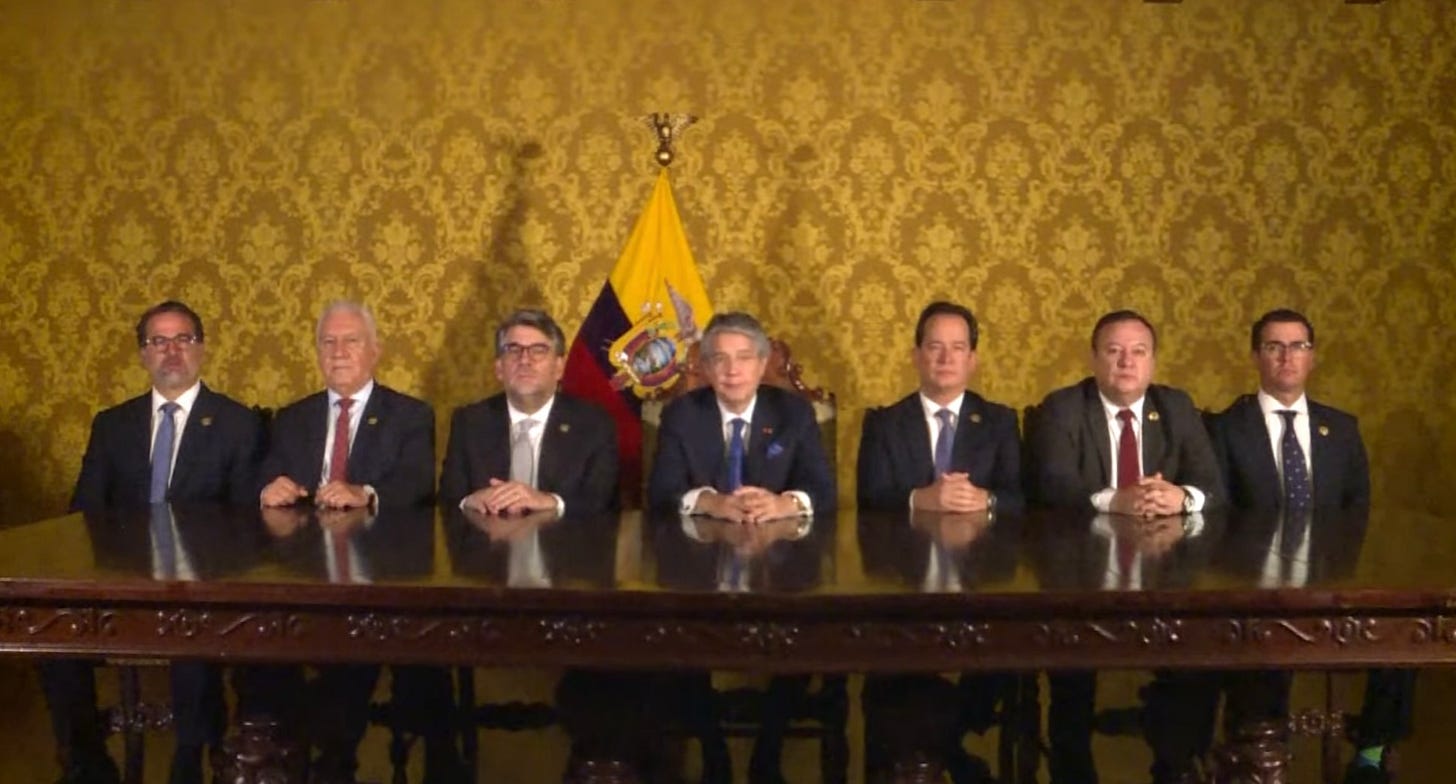Economic impact of the dissolution of the Assembly
The "cross death" in Ecuador may lower political tensions, but will generate more economic uncertainty
By Luis Fierro Carrión (*)
Twitter: @Luis_Fierro_C
President Guillermo Lasso constitutionally activated the so-called "cross death", that is, the dissolution of the National Assembly and the call for elections for the remaining time of the current presidential term (until May 2025).
Montecristi's hyper-presidentialist Constitution, tailored to the measure and taste of then-President Correa, only imposes two restrictions on the presidential power to invoke cross death: it must be carried out during the first three years of government, and it can be carried out only once (in a presidential period). Two of the three grounds do not require the prior approval of the Constitutional Court.
The largest opposition party, Correísmo (so-called “Citizens Revolution”), had been pressing for the use of this mechanism for a few weeks, going so far as to publish a statement in favor of it. However, once produced, some of its spokesmen have said (erroneously) that the decision was "illegal" or "unconstitutional". But apparently its most authoritative spokesperson, former gang member and former Assemblyman Ronny Aleaga, ruled that said movement agrees with the measure and that it will compete in the elections.
The call for elections must be made within 7 days from the decree of dissolution, and the elections will take place within three months. If someone wins in the first round, they could take office within four months; if a second electoral round is necessary (most likely), it would take place within six months.
Until then, the President can govern through decree-laws of economic urgency (which must be validated by the Constitutional Court). He has already issued the first one, a tax reform that undoes part of the progressive tax reform that was passed in November 2021 (the only significant law passed during his tenure). This decree will also reduce tax revenues in circumstances where the international price of oil has fallen and the service of the external debt will begin to increase.
The possibility of submitting other decree-laws has been mentioned, for example, on labor reform and manufacturing free zones. It is possible that the Constitutional Court will strike down some measures if it considers that acquired constitutional rights are violated. The new Assembly to be elected may nullify any reform approved during this transition period.
The “cross death” allows a democratic solution to the serious institutional crisis that the country is experiencing. By opening a new electoral process, certain tensions and threats of mobilizations and uprisings dissipate, since the political and social forces will focus on the upcoming electoral competition.
However, the period also generates uncertainty and may put private sector investment (both domestic and foreign) on hold until the next President is elected. If a candidate who is not "market friendly" wins, the country risk premium could continue to increase, and there would be limited access to external financing (including from the IMF and multilateral banks), in circumstances in which debt service will increase (starting in 2025, given the bond debt restructuring that took place in 2020).
President Lasso has indicated that the decision was also made to prevent a plan that would seek to annul the sentences of former President Correa and other officials of Correa’s government, through the appointment of new control authorities (Prosecutor, Comptroller, Attorney General). If a candidate related to the conspiratorial "triumvirate" wins (Correa, Nebot and Iza), that plan could be reactivated within six months.
(*) Translation of my column published in Diario “El Universo” on May 19, 2023:
https://www.eluniverso.com/opinion/columnistas/impacto-economico-de-la-muerte-cruzada-nota/
President Lasso of Ecuador announcing the dissolution of the National Assembly



